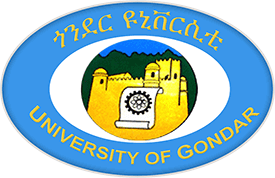






About Information Communication Technology
information Communication Technology (ICT) is responsible for the planning, management, and direction of technology initiatives in support of both academic and administrative operations in the university.
ICT provides the university community with different set of technology services including development, monitoring, and maintenance of the campus data network, video conferencing services, ERP system, telephone system, print © system, computer systems and servers, technology training, consultancy and smart classrooms.
Service teams under ICT :
- Network Infrastructure services
- Technology teaching and Learning Services
- Software Development
- Mentainance and Support Services
- Training and consultancy Services

Campus View
ICT Directorate Director - Roles & Responsibilities
The ICT Directorate Director is responsible for setting the direction, strategy, and implementation of ICT systems and infrastructure to support the organization’s goals and operations.
1. Strategic Planning & Leadership
- Develop and implement the ICT strategic plan aligned with the organization’s vision and mission.
- Provide strategic advice to senior management on ICT investments, innovations, and digital transformation.
- Lead ICT governance, ensuring compliance with policies, regulations, and security standards.
2. ICT Infrastructure & Operations
- Oversee the operation, maintenance, and security of the ICT infrastructure (networks, servers, data centers, etc.).
- Ensure business continuity through disaster recovery planning and data backup solutions.
- Manage the deployment of hardware and software systems.
3. Project Management
- Plan, initiate, and manage major ICT projects (e.g., new systems, software deployments, cybersecurity initiatives).
- Ensure projects are delivered on time, within budget, and meet business requirements.
4. Cybersecurity & Data Protection
- Develop and enforce cybersecurity policies and protocols.
- Ensure the confidentiality, integrity, and availability of organizational data and systems.
- Lead response efforts for cyber incidents and security breaches.
5. Budgeting & Resource Management
- Prepare and manage the ICT budget efficiently.
- Ensure cost-effective procurement and use of technology resources.
- Oversee ICT contracts and vendor relationships.
6. Team Leadership & Development
- Lead and manage the ICT team, ensuring adequate staffing, training, and development.
- Foster a culture of innovation, accountability, and continuous improvement.
7. Stakeholder Engagement
- Collaborate with other departments to align ICT services with business needs.
- Serve as the primary point of contact for external ICT partners, vendors, and regulatory bodies.
11
Software Development Teams
29
Network and system Administrator Teams
6
Learning and Teaching Technology teams
1
Training and Consultancy Teams
40
Maintenance and Support Teams
Our Partners





